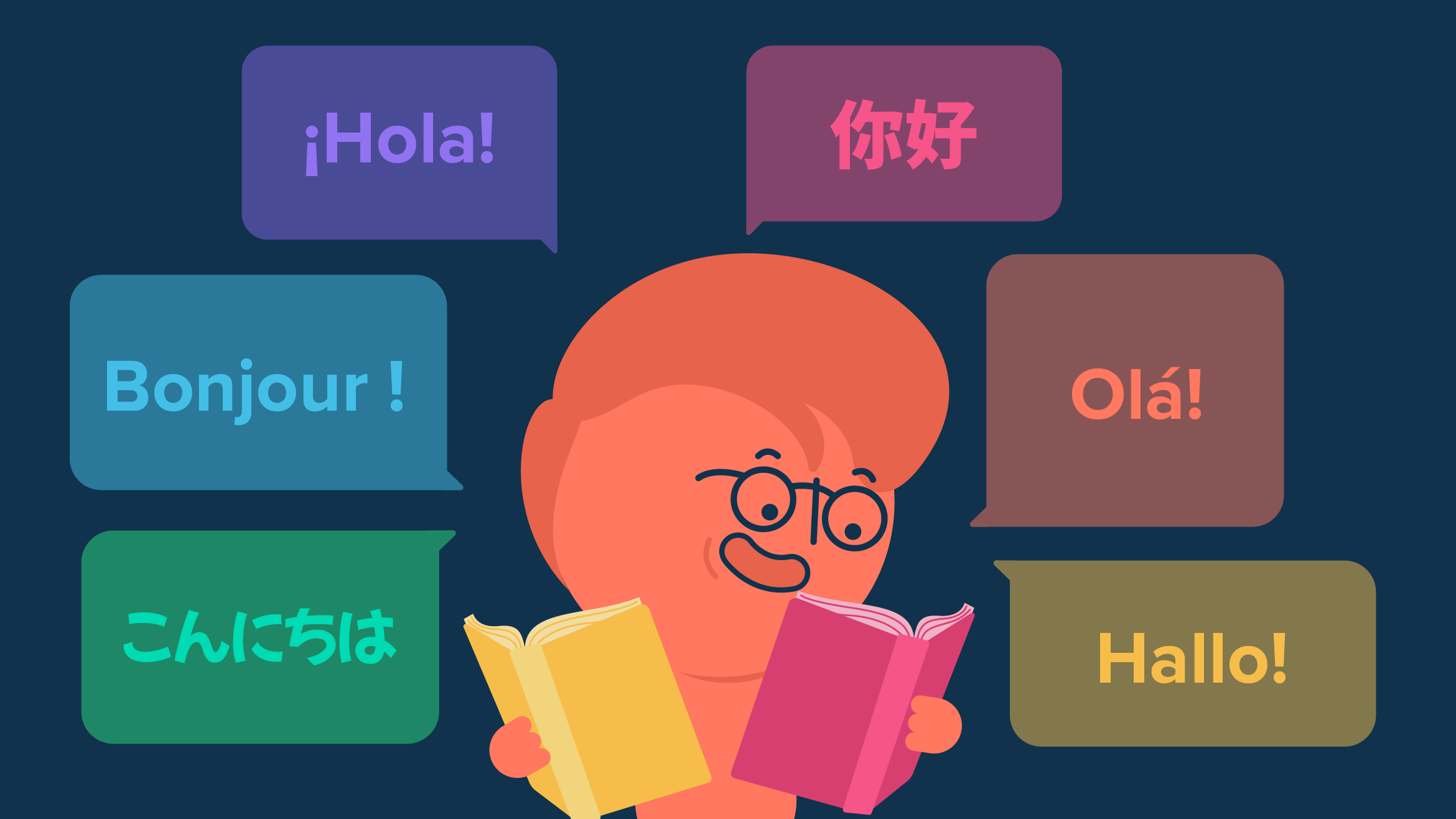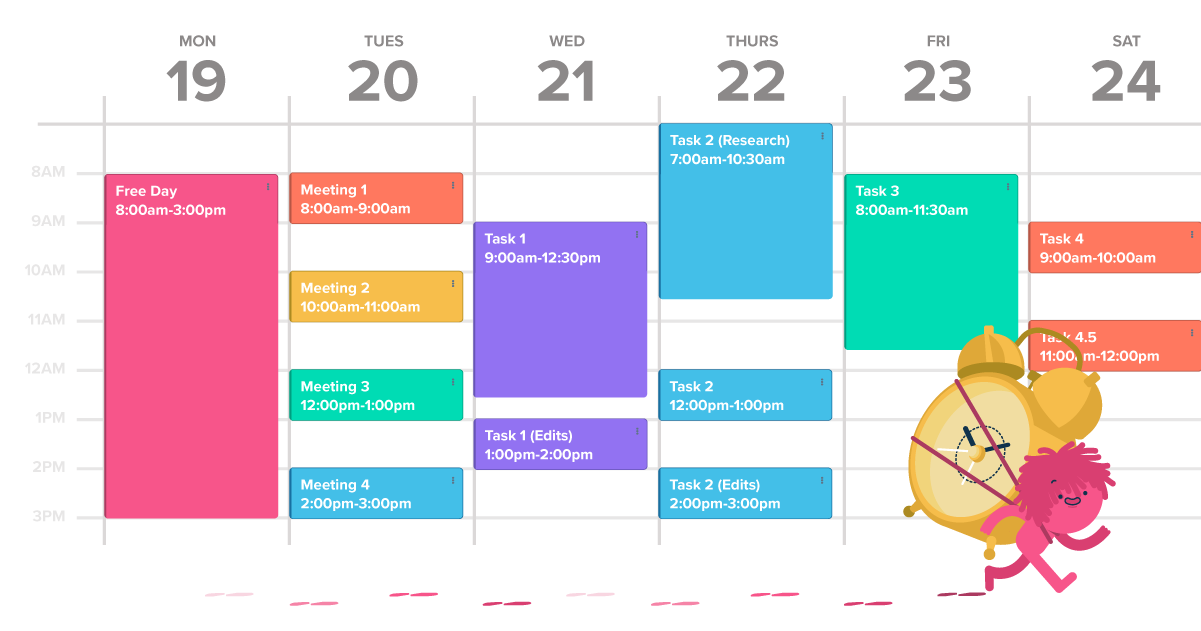The Woes of Language Learning
There are those people who have this supernatural talent for picking up languages. Give them a month with their Netflix account set to the target language, and soon enough, they’ll be telling you all the gossip about their uncle who had apparently set out to milk the cows and came home with a deer he’d confused for a goat (city kids, amirite?). I don’t know if you’re that type of a blessed person, but regardless of your proclivities for language learning, mastering a foreign language is indeed an achievable goal.
Of course, there are times when it feels like language learning is nothing but an endless uphill struggle sprinkled by rock-throwing trolls from above, but hey, stagnation is also a part of this process. Whether you’re looking for a new language to learn or are just out to get some tips on mastering the one you’re already grappling with, welcome to our crash course on leaving the woes of language learning behind.
What’s the Easiest Language to Learn (for English Speakers)?
Let’s start with our beginners. If you left school a while ago and have forgotten whatever traces of French and German you had acquired there, you may be wondering which language would be a good fit to get back into the swing of things. You won’t be surprised to find that as an English speaker, you’re most likely to master languages of Germanic origin quite easily.
- Norwegian, Swedish, and even Dutch are extremely close to English grammatical structures and formulations (hardly will you ever find present perfect tense in such tantalising similarities). A lot of vocabulary is also similar, which will make memorisation easier.
- Spanish. Although a romance language, Spanish is a relatively easy one to master. The sentence structure is not as rigid as in German or even English, and a lot of vocabulary stems from Latin. The bonus is most earworm-inducing Spanish tunes – I mean, who doesn’t like a bit of Shakira and Enrique Iglesias in their life?
- French. Although French does have a thing for skipping vowels, chances are you’ve encountered it already. If you’ve learnt French in school, the revision will come easier than you think, and if not, there are tons of French movies, music, and radio materials you can listen to in order to get more attuned to the language.
- Afrikaans. Moving slightly away from Europe and towards Namibia and South Africa, you’ll find the Dutch daughter language. Colonial exploits aside, Afrikaans shares more than 90% of its vocabulary with Dutch, and as we’ve established, Dutch is an easy language to learn for English speakers. The grammar, too, is not overly complex, and it’s undoubtedly an out-of-the-box option.
Apart from these, if you know Latin, Italian will come easily to you. Similarly, you won’t have trouble with Portuguese if you know Spanish. Ultimately, the easiest language to learn is the one you’re motivated to learn. If you want to travel, participate in a student exchange, or are simply enticed by the culture, learning the target language won’t be an issue. On the other hand, if you feel pressured to learn one, you may find you’re struggling at times.
The Hardest Languages to Learn
If you’re looking for a challenge or curious about the hardest languages out there, we did some digging for you. Natives of Germanic languages tend to have trouble with various tongues spoken around Asia. Chinese and Japanese are probably among the hardest to learn, especially since many words change their meaning completely depending on pronunciation. Quite a shame, given that Chinese has the most speakers in the world. Korean and Vietnamese are close in tow.
On the other hand, Arabic is, as far as any speaker of any European language is concerned, the toughest language out there. Pashto (spoken in Pakistan and parts of India) is equally dramatic for non-speakers, as are Gujarati, Hindi, and, let’s face it, the other 20 official languages spoken in India.

6 Powerful Ways to Learn a Language
All the drama of choosing a language aside, you’re here to find out the best way to learn a foreign language. Having dawdled enough, here are our best tips:
- Immersion. The ultimate secret to learning a language is exposure. If you’re on a student exchange, take this chance to talk to people as much as possible. Even beginner questions like ‘how are you?’ and ‘what time is it?’ will provide you with some practice. On the other hand, if you’re learning a language from home, surround yourself with the language – music, movies, books, and news. Take in as much as you can.
- Context. Gone are the days of cramming a series of random words just because they might be helpful one day. Learn words in context through example sentences, stories, music, and newspaper articles. Have a special vocabulary notebook where you write down new words and their meanings. As soon as you’ve mastered A2 and hopped into B1, try not to write simple translations of words but rather synonyms and explanations with examples.
- Grammar. As a foreign-language major, it grinds my gears when people scorn grammar! The truth is, you cannot learn a language without learning grammatical rules. Grammar governs the meaning as much as vocabulary, and certain choices add finesse and tone to each utterance. However, grammar doesn’t have to be boring; learn it through context, add memorable examples, and imagine situations where you would use specific structures.
- Revision. Whatever you’re doing, you need to revise (and relearn) grammar and vocabulary often. Find exercise sheets online or purchase a workbook to make the most of your learning experience.
- Consistency. Learning a language is not like learning to ride a bicycle – you do forget it. If you’re not consistent in studying and revising, what you’ve learnt will expire from your memory quickly. Avoid having to start from scratch every time by keeping your mind and tongue active through regular practice.
- Taking a class. At the end of the day, it’s always a good idea to sign up for some language lessons around you. An organised course means fewer excuses because you’ll want to attend classes and do your homework. Naturally, courses taught by experts come with many benefits, including expertly designed curricula, a personalised learning experience, and the chance to ask any questions that might cross your mind.
Try to make your language learning experience enjoyable. If you can afford it, travel to places where the language is spoken or watch documentaries about life there. Stick to the golden rules of studying effectively and keep yourself motivated by tracking progress and setting up a reward system.
Our Top 5 Tried-and-Tested Language Learning Apps
In addition to the recommendations listed above, getting a good language learning app can boost your progress, especially if you heed the notifications and reminders you get. There are tons of apps for learning languages out there, and I’m sure you’re already familiar with Babbel and Duolingo and its menacing owl, but here are a few more:
- Rocket Languages. In addition to a series of audio (and some video) materials, what is perfect about this app is its survival kit. Namely, whichever language you learn, you’ll have access to a special selected feature – surviving in a target country with all the necessary phrases and key sentences. Apart from this cool boon, the app is tailored to fit the needs of every learner and covers hundreds of foreign languages.
- Memrise. This app is best used for broadening your vocabulary. There are tons of audio materials exhibiting native speakers using sample sentences and acting out realistic linguistic scenarios. The app uses a series of mnemotechnics to help you memorise the new vocabulary, and it offers an expert-designed curriculum.
- LinguaLift. Funny though it is, the logo of this app is reminiscent of the Duolingo owl – just buffed up. With this app, you’ll have personal help from a tutor who will design a customised curriculum to help you reach your goals. Teaching is directed at all four macro skills – reading, listening, speaking, and writing – and you can study as many languages as you want with one subscription.
- Rosetta Stone. Rosetta Stone has its own approach to language learning – it’s immersive and intuitive. You won’t get instant translations here – instead, you’ll be guided to form your own conclusions via the inductive method by matching sentence parts, playing with flashcards, and revising with visual tools.
- Pimsleur. If you’re struggling to find time to learn a language, this buddy app is for you. In about 30 minutes per day – on your way to work, while running errands, or doing chores – this app will guide you to relative fluency. The Pimsleur method shuns memorisations and rote learning, opting instead for practical language use, which you may rely on, especially when you travel abroad.
Finding Some Free Language Learning Apps
If you’re unsure whether investing in a language course is the wisest option, you may check out some free apps to get you started on your language learning journey. Out of the ones listed above, Duolingo is free, as are the following well-reviewed apps: busuu, Quizlet, and Accelalearning.
In addition to solely language-focused apps, you can use the StudySmarter app to create your own flashcards, look up relevant explanations, and enjoy a comprehensive learning experience.
The StudySmarter app offers an easy-to-use flashcard maker, which you can use to learn languages!
Language Learning with Netflix
In case I haven’t mentioned it before, learning a new language works best when you immerse yourself in it. And what better way to do so than while you’re enjoying your favourite movies on Netflix? Netflix released a browser extension, ‘Learn Languages with Netflix’, which adds a series of subtitles to the program you’re watching.
You can choose between the basic and advanced options: With basic, you’ll have a double subtitle, one in your target language, the other in your native tongue (or any other you’re fluent enough in), which will help you with vocabulary and grammatical structures. The more advanced version is for once you’ve learnt a bit more and don’t need the double sub anymore. Instead, the necessary translation will appear once you press S on your keyboard. Cool feature, huh? 😊
Language Learning is Not Hard
… it is only made out to be so. Instead of dreading the idea of learning a new language, make an effort to start, and you’ll be surprised at how quickly you’re advancing.
Remember these crucial tips for learning any language:
- Immerse yourself in the target language.
- Learn grammar and vocabulary through context.
- Use a language learning app.
- Stay consistent and revise often.
- Practise as much as you can.
Put your thinking cap on and try it out. How about checking basic German phrases? Just to see it’s not THAT hard 😉.
The best way to learn any language, including sign language, is to immerse yourself in it. Watch YouTube videos to learn to sign properly, read books about characters using sign language (try True Biz by Sara Novic), and practise. You can also sign up for a class or use an app.
Asian languages tend to be the hardest languages to learn for English speakers: Chinese, Japanese, and Korean, as well as Pashto, Hindi, and Arabic.
Depending on how complex the language is, you can learn a language in six months to several years IF you practise and study daily. Realistically, it takes several years to learn a language.
To learn a language effectively, you should learn through context and immersion, listen to music, watch movies, and read the news and books in the target language. Learn grammar and vocabulary and revise regularly. Stay consistent and practise as much as you can.
Definitely not, despite its many exceptions! The hardest languages to learn are probably Chinese, Japanese, Arabic, and Pashto.
Whichever language you want to learn! Learning a new language goes smoothly when you're properly motivated. If you're going on a student exchange, love the culture, or are interested in a language, you should learn it.
No, you cannot learn a language in your sleep. However, there are some indications that if you study before bed and fall asleep soon, your brain will retain more information.
How we ensure our content is accurate and trustworthy?
At StudySmarter, we have created a learning platform that serves millions of students. Meet the people who work hard to deliver fact based content as well as making sure it is verified.

Gabriel Freitas is an AI Engineer with a solid experience in software development, machine learning algorithms, and generative AI, including large language models’ (LLMs) applications. Graduated in Electrical Engineering at the University of São Paulo, he is currently pursuing an MSc in Computer Engineering at the University of Campinas, specializing in machine learning topics. Gabriel has a strong background in software engineering and has worked on projects involving computer vision, embedded AI, and LLM applications.
Get to know Gabriel




